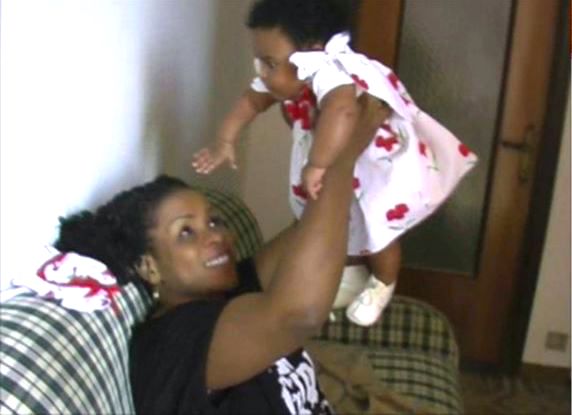Infant studies conducted in Western countries document that a major developmental transition occurs by the end of the 2nd month, indexed by the onset of social smiling, increased alertness, sustained visual attention, and speech-like sounds such as cooing. These transformations, and their effect on caregivers’ behavior, provide the infant with experiences of reciprocity via face-to-face exchange of positive emotions, deemed fundamental for infant emotional and social-cognitive development. Among contemporary scholars, however, there is agreement that interactional patterns between caregivers and infants vary grossly across cultures. Only a few studies (Kärtner, Keller, & Yovsi, 2010; LeVine et al., 1994; Tronick & Beegly, 2011) have explored caregiver-infant interaction across the 2-month transition in non-Western traditional rural cultures. These studies revealed both cross-cultural evidence for a major change in infant behaviors around 2 months and differences in maternal responses to their infants’ social behaviors, showing that the western pattern of face-to-face visual and vocal exchanges is largely absent in cultures that emphasize relatedness based on hierarchical roles. There is some indication of more proximal contingent responsiveness, characterized by body contact and body stimulation in these cultures. However, the studies have focused mainly on patterns of maternal contingent responsiveness to their infants’ communicative signals and failed to examine the mutual influence of maternal and infant behaviors in developing patterns of co-regulation across the first postnatal months.
With this study we therefore want to contribute to the literature by deepening the investigation of universal aspects and cultural specificities in mother-infant interaction during the first three months of life, i.e., before, during, and after the 2-month transition indexed by the onset of social smiling, in different cultural groups: Italian middle-class families, Northwest Cameroonian Nso farmer families, and West African (cameroonian, Ghanaian, Nigerian) immigrant families in Italy. Both maternal and infant behaviors during interaction and socialization goals and parenting etnotheories were examined. Twenty mother-infant dyads from each cultural group were videotaped during spontaneous interaction, longitudinally, every two weeks between 4 and 12 weeks. Infants’ behaviors were coded as joint states of attention and emotional expression. Mothers’ behaviors were coded in categories grouped into behavioral patterns: Body Contact, Just Gazing, Affectionate Talking (including Smiling/Mirroring), Motor Stimulation, Tactile Stimulation, Object Stimulation. Both real-time relationships (i.e., significant transitional probabilities) between maternal and infant behaviors, and developmental changes in patterns of mother-infant interaction over the first 3 months of life were analyzed. When the infants were 12-months-old a questionnaire about parental socialization goals and a picture cards interview about parenting ethnotheories were submitted to the mothers. The relation between maternal beliefs and behaviors within the immigrant group compared to the Italian group was also examined.
Keywords
Early mother-infant interaction, emotional co-regulation, culture, immigration, socialization goals, parenting ethnotheories
Principal Investigator
Manuela Lavelli, University of Verona
Project Participants
- Cecilia Carra, PhD at University of Verona
- Joscha Kärtner, University of Münster, Germany
- Manuela Lavelli, University of Verona
- Heidi Keller, Emeritus Professor, University of Osnabrück, Germany, and Hebrew University of Jerusalem, Israel
- Germano Rossi, University of Milano-Bicocca
Duration
60 months (October 2011- September 2016)
Current State
Completed research project; results have been published; only one publication is still in preparation.
Publications
Lavelli, M., Carra, C., Rossi, G., & Keller, H. (2019). Culture-specific development of early mother-infant emotional co-regulation: Italian, Cameroonian, and West African immigrant dyads. Developmental Psychology, Special Issue on “New Perspectives on the Development of Human Emotion” (Co-Eds. Pollak, Camras, Cole), 55(9), 1850-1867. https://doi.org/10.1037/dev0000696.
Carra, C., Lavelli, M., & Keller, H. (2014). Practices of body stimulation during the first 3 months: Ethnotheories and behaviors of Italian mothers and West African immigrant mothers. Infant Behavior & Development, 37, 5-15. https://doi.org/10.1016/j.infbeh.2013.10.004.
Carra, C., Lavelli, M., Keller, H., & Kärtner, J. (2013). Parenting infants: Beliefs and behaviors of Italian mothers and immigrant mothers from West Africa. Journal of Cross-Cultural Psychology, 44, 1304-1320. https://doi.org/10.1177/0022022113486004.
Carra, C., & Lavelli, M. (2013). La prospettiva culturale allo studio dell’attaccamento [Cultural perspective on attachment research]. Giornale Italiano di Psicologia, XL(2), 265-288.
Conference presentations
Lavelli, M., Zanoni, S., Carra, C., & Keller, H. (2016). Rhythm and modes of maternal vocal stimulation to 3-month-old infants:A comparison across cultures and immigration experience. Paper session, ICIS (International Conference on Infant Studies) 2016,New Orleans, May 26-28.
Lavelli, M., Zanoni, S., Carra, C., & Keller, H. (2016). Ritmo e modalità dell’input vocale di madri immigrate nell’interazione con il bambino di 3 mesi: Indicatori di un processo di acculturazione. In Simposio, XXIX Congresso Naz.AIP – Sez. Psicologia Sviluppo Edu.,Vicenza, 8-10 settembre.
Lavelli, M., Carra, C., & Keller, H. (2014). Real-time dynamics and developmental changes in early mother-infant interaction: Italian, Cameroonian, and West African immigrant dyads. In Symposium, ICIS (International Conference on Infant Studies) 2014,Berlin, July 3-5.
Keller, H., Lavelli, M., Papaligoura, Z., & Gratier, M. (2014). Socialization strategies during infancy. Middle-class mother-infant interactions in different European countries. Invited presentation at EASP Small Group Meeting “Culture and Psychology: Insights from the European Context“, Leuven, Belgium, July 5-7.
Lavelli, M., Carra, C., & Keller, H. (2014). Universalità e specificità culturale nello sviluppo dell’interazione madre-lattante: La transizione dei 2 mesi è realmente universale?In Simposio,XXVII Congresso Naz.AIP – Sez. Psicologia Sviluppo Edu.,Università della Calabria, Arcavacata di Rende (CS), 18-20 settembre.
Carra C., Lavelli M. (2012). Parenting systems with 3-month-old infants: Behaviors and beliefs of Italian mothers and immigrant mothers from West Africa. In Invited Symposium, IACCP (International Association for Cross-Cultural Psychology) 21stInternational Congress, Stellenbosch, South Africa, July 17-21.
Carra C., Lavelli M. (2012). Etnoteorie parentali e obiettivi di socializzazione di madri italiane e madri immigrate dall’Africa Occidentale. In Simposio, Congresso Nazionale delle Sezioni AIP “1992-2012 Psicologia, Scienza, Società”,Chieti, 20-23 settembre.
Carra C., Lavelli M. (2011). Sistemi di parenting nei primi mesi di vita: comportamenti e credenze di madri italiane e madri immigrate dall’Africa Occidentale. Poster, XXIV Congresso Nazionale della Sezione di Psicologia dello Sviluppo – AIP,Genova, 19-21 settembre.


